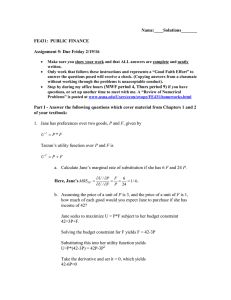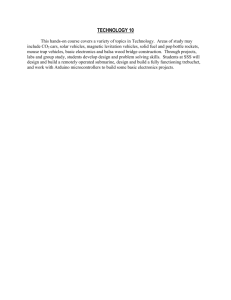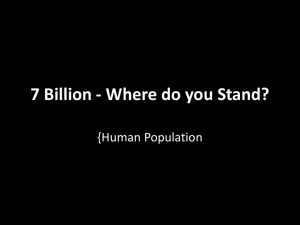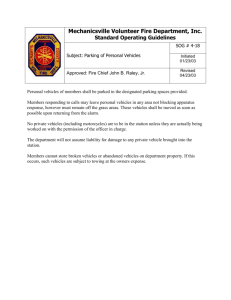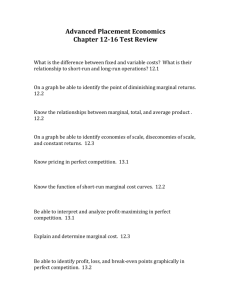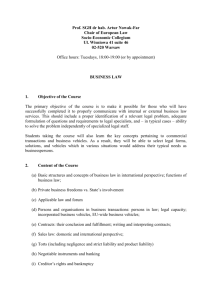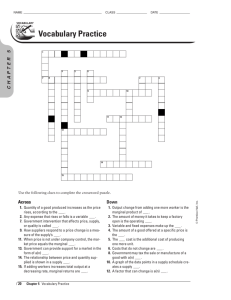Name:____________________ FE431: PUBLIC FINANCE Assignment 5: Due Friday 2/19/16
advertisement
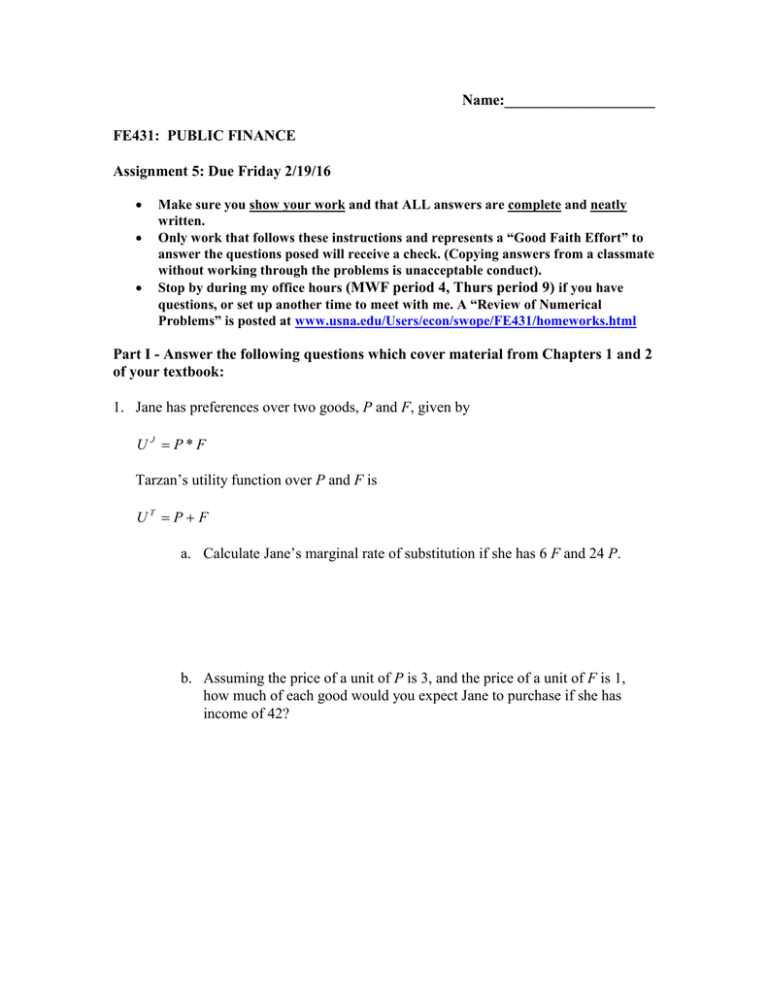
Name:____________________ FE431: PUBLIC FINANCE Assignment 5: Due Friday 2/19/16 Make sure you show your work and that ALL answers are complete and neatly written. Only work that follows these instructions and represents a “Good Faith Effort” to answer the questions posed will receive a check. (Copying answers from a classmate without working through the problems is unacceptable conduct). Stop by during my office hours (MWF period 4, Thurs period 9) if you have questions, or set up another time to meet with me. A “Review of Numerical Problems” is posted at www.usna.edu/Users/econ/swope/FE431/homeworks.html Part I - Answer the following questions which cover material from Chapters 1 and 2 of your textbook: 1. Jane has preferences over two goods, P and F, given by UJ P*F Tarzan’s utility function over P and F is UT P F a. Calculate Jane’s marginal rate of substitution if she has 6 F and 24 P. b. Assuming the price of a unit of P is 3, and the price of a unit of F is 1, how much of each good would you expect Jane to purchase if she has income of 42? c. Calculate Tarzan’s marginal rate of substitution if he has 6 F and 24 P. d. Assuming the price of a unit of P is 3, and the price of a unit of F is 1, how much of each good would you expect Tarzan to purchase if he has income of 42? Part II - Answer the following questions which cover material from Chapter 2 of your textbook (Externalities) and imperfect competition / monopoly power: 2. Assume that a fuel-cell powered vehicle is developed that has zero hazardous emissions. Let the marginal private benefit (i.e. the market demand) for these vehicles be MPB = 50,000 – Q where Q is the total quantity of fuel-cell vehicles purchased. Given their ability to reduce pollution, these vehicles are considered to have a marginal external benefit of MEB = 0.2Q Furthermore, assume there is a constant marginal (private) cost of producing such vehicles of 30,000. There are no marginal external costs. a. What is the economically efficient number of fuel-cell vehicles that should be produced and purchased each year? b. Calculate the equilibrium market quantity and price if such vehicles are produced in perfectly competitive markets. Show (by calculation) that the DWL at the perfectly competitive outcome is $10 million (per year). How large of a Pigouvian subsidy would be necessary to lead to the efficient number of vehicles being purchased? c. Suppose such vehicles were produced by a single-price monopoly. Calculate the monopoly’s price and quantity of vehicles sold, and demonstrate that the deadweight loss (per year) in this case would be $90 million per year.
